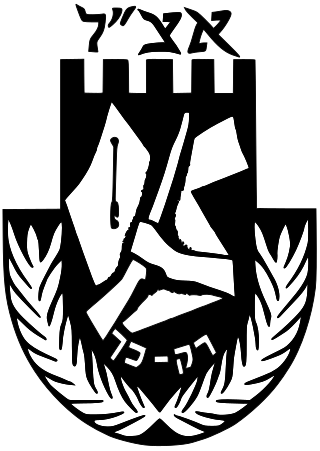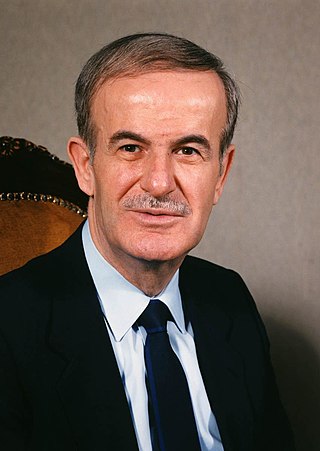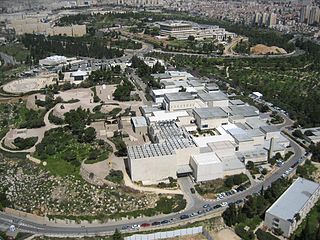
The Irgun, officially the National Military Organization in the Land of Israel, was a Zionist paramilitary organization that operated in Mandatory Palestine between 1931 and 1948. It was an offshoot of the older and larger Jewish paramilitary organization Haganah. The Irgun has been viewed as a terrorist organization or organization which carried out terrorist acts.

Zionist political violence refers to acts of political violence or terrorism committed by Zionists in support of establishing and maintaining a Jewish state in Palestine. These actions have been carried out by individuals, paramilitary groups, and the Israeli government, from the early 20th century to the present day, as part of the ongoing Israeli-Palestinian conflict.

Jerusalem is a city in the Southern Levant, on a plateau in the Judaean Mountains between the Mediterranean and the Dead Sea. It is one of the oldest cities in the world, and is considered holy to the three major Abrahamic religions—Judaism, Christianity, and Islam. Both the State of Israel and the State of Palestine claim Jerusalem as their capital city. Israel maintains its primary governmental institutions there, and the State of Palestine ultimately foresees it as its seat of power. Neither claim is widely recognized internationally.

Hafez al-Assad was a Syrian politician and military officer who was the 18th president of Syria from 1971 until his death in 2000. He was also the prime minister of Syria from 1970 to 1971 as well as the regional secretary of the regional command of the Syrian regional branch of the Arab Socialist Ba'ath Party and secretary general of the National Command of the Ba'ath Party from 1970 to 2000. Hafez al-Assad was a key participant in the 1963 Syrian coup d'état, which brought the Syrian regional branch of the Arab Socialist Ba'ath Party to power in the country, a power that lasted until the fall of the regime in 2024, then led by his son Bashar.

The British administrative headquarters for Mandatory Palestine, housed in the southern wing of the King David Hotel in Jerusalem, were bombed in a terrorist attack on 22 July 1946, by the militant right-wing Zionist underground organization Irgun during the Jewish insurgency. Ninety-one people of various nationalities were killed, including Arabs, Britons and Jews, and 46 were injured.

Mohammed Amin al-Husseini was a Palestinian Arab nationalist and Muslim leader in Mandatory Palestine. Al-Husseini was the scion of the al-Husayni family of Jerusalemite Arab nobles, who trace their origins to the Islamic Prophet Muhammad.
During the 1948 Palestine war, massacres and acts of terror were conducted by and against both sides. A campaign of massacres and violence against the Arab population, such as occurred at Lydda and Ramle and the Battle of Haifa, led to the expulsion and flight of over 700,000 Palestinians, with most of their urban areas being depopulated and destroyed. This violence and dispossession of the Palestinians is known today as the Nakba.

Afula is a city in the Northern District of Israel, often known as the "Capital of the Valley" due to its strategic location in the Jezreel Valley. As of 2022, the city had a population of 61,519.

A series of attacks were perpetrated or ordered by Palestinian Arabs, some of them acting as suicide bombers, on Jewish targets in Jerusalem's Ben Yehuda Street from February 1948 onwards. Ben Yehuda Street was a major thoroughfare.

The Israel Museum is an art and archaeology museum in Jerusalem. It was established in 1965 as Israel's largest and foremost cultural institution, and one of the world's leading encyclopaedic museums. It is situated on a hill in the Givat Ram neighborhood of Jerusalem, adjacent to the Bible Lands Museum, the National Campus for the Archaeology of Israel, the Knesset, the Israeli Supreme Court, and the Hebrew University of Jerusalem.

Bezalel Academy of Arts and Design is a public college of design and art located in Jerusalem. Established in 1906 by Jewish painter and sculptor Boris Schatz, Bezalel is Israel's oldest institution of higher education and is considered the most prestigious art school in the country. It is named for the Biblical figure Bezalel, son of Uri, who was appointed by Moses to oversee the design and construction of the Tabernacle. The art created by Bezalel's students and professors in the early 1900s is considered the springboard for Israeli visual arts in the 20th century.

Robert Eisenman is an American biblical scholar, historian, archaeologist, and poet. He is currently professor of Middle East religions, archaeology, and Islamic law and director of the Institute for the Study of Judaeo-Christian Origins at California State University Long Beach.

Malchiel Gruenwald (1882–1968) was an Israeli hotelier, amateur journalist, and stamp collector, who came to public attention in 1953, when he accused an Israeli government employee, Rudolf Kastner, of having collaborated with the Nazis during the Holocaust.

Ze’ev Raban (22 September 1890 – 19 January 1970), born Wolf Rawicki (Ravitzki), was a leading painter, decorative artist, and industrial designer of the Bezalel school style, and was one of the founders of the Israeli art world.
Vendyl Miller Jones was an American Noahide scholar who directed archaeological searches for biblical artifacts such as the Ark of the Covenant.

Ze'ev (Ze'evik) Nachum Revach was an Israeli comedian, actor and filmmaker. His prolific acting career included many roles in film, TV, and theater.

The 1948 Palestine war was fought in the territory of what had been, at the start of the war, British-ruled Mandatory Palestine. During the war, the British withdrew from Palestine, Zionist forces conquered territory and established the State of Israel, and over 700,000 Palestinians fled or were expelled. It was the first war of the Israeli–Palestinian conflict and the broader Arab–Israeli conflict.

Jacques Cohen was an Israeli actor.

2 Samuel 15 is the fifteenth chapter of the Second Book of Samuel in the Old Testament of the Christian Bible or the second part of Books of Samuel in the Hebrew Bible. According to Jewish tradition the book was attributed to the prophet Samuel, with additions by the prophets Gad and Nathan, but modern scholars view it as a composition of a number of independent texts of various ages from c. 630–540 BCE. This chapter contains the account of David's reign in Jerusalem. This is within a section comprising 2 Samuel 9–20 and continued to 1 Kings 1–2 which deal with the power struggles among David's sons to succeed David's throne until 'the kingdom was established in the hand of Solomon'.

















